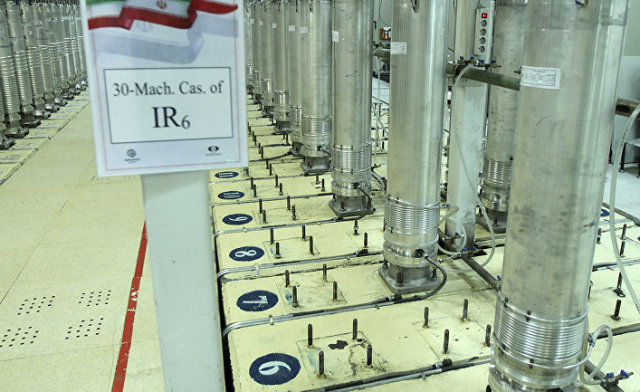Jerusalem. October 2. INTERFAX - Iran is enriching uranium at an unprecedented pace, but Tehran does not have the ability to create nuclear weapons soon, said the head of the Israeli Military Intelligence Department, Major General Tamir Hayman.
"(Iran - IF) has enriched uranium in volumes we have never seen before, and this is alarming. At the same time, we do not see success in all other aspects of the Iranian nuclear project," the Jerusalem Post quoted him as saying.
"There are none in the development of weapons, nor in the financial sphere, nor in any other sector... even from the moment when you have a breakthrough (with developments - IF), you have to go a long way to a nuclear bomb," the Major General explained.
According to him, Iran is not moving towards a breakthrough with the development of nuclear weapons, and the prospect of obtaining it "may be a distant future."
According to his estimates, Tehran will probably continue enriching uranium, while simultaneously conducting exhausting negotiations with Western countries around the Joint Comprehensive Plan of Action (JCPOA) on the Iranian nuclear program. Hyman noted that it is necessary to direct Iran's policy along the right path by diplomatic means, but in parallel "there must be a practical reliable military solution together with economic and diplomatic means."
Hyman also touched on the topic of the Iranian military commander Qasem Suleimani, who was killed in January 2020 in Baghdad as a result of a US special operation. The head of military intelligence called the death of the commander of the special unit "Quds" of the Islamic Revolutionary Guard Corps one of the most important recent events that contributed to the security of Israel.
According to Hayman, there are few people like Suleimani, because he had a strategic vision and the ability to act, was the "designer of Syria." He noted that other persons, such as Brigadier General Ismail Gaani, who headed QUDS after the death of Suleimani, play an important administrative role, but cannot influence the decision-making process. As a result, no one is interested in continuing Suleimani's policy in the region, including external players, Hayman concluded.
He said that there is a "systematic and continuous" reduction of Iranian influence in Syria; however, although Iran is withdrawing its people from this country, the Syrian militias maintain their positions.
But, Hyman warned, there also remains the Lebanese Shiite movement Hezbollah, which the head of military intelligence described "as a means that can be used only once; as a match."
Hyman warned that if Iran wants to use Hezbollah against Israel, it will lead Lebanon to collapse.

